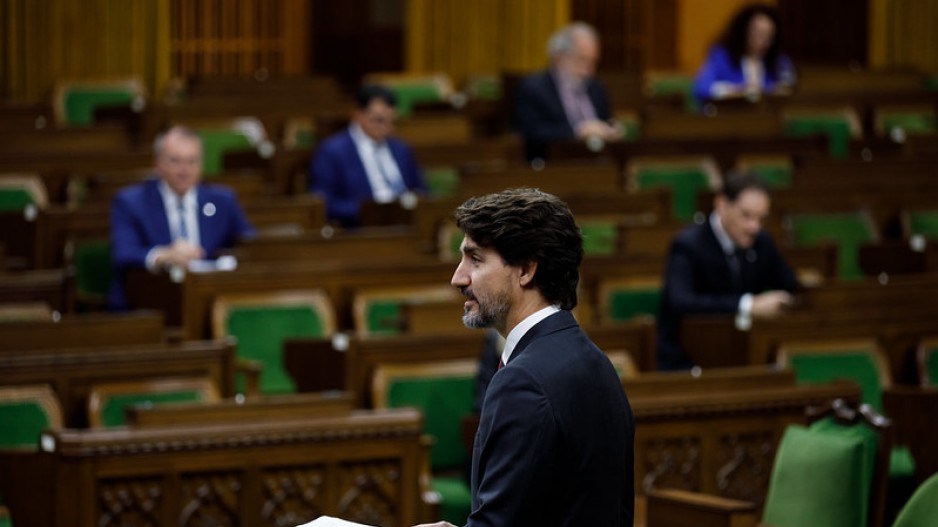Canada is suspending all flights to Mexico and the Caribbean in a bid to thwart variants of COVID-19 from entering the country.
Those restrictions go into effect Sunday (January 31), while Prime Minister Justin Trudeau also revealed Friday that all international travellers will only be able to land at airports in Vancouver, Calgary, Toronto and Montreal beginning next week.
Travellers who arrive in those cities will be required to take a PCR (polymerase chain reaction) test at the airport to determine if they have COVID-19.
Those travellers will then be required to wait at an approved hotel for up to three days at their own expense as they await test results.
Trudeau estimated the cost of the hotel stays would run about $2,000.
Those who test negative will be able to quarantine at home, while those international travellers who test positive will be sent to a designated government facility to quarantine.
The new measures come after the prime minister repeatedly urged Canadians throughout January not to depart the country on non-essential travel in the event new restrictions are imposed.
Ottawa imposed temporary restrictions on travellers from the U.K. in December upon the emergence of a new variant of COVID-19 circulating in Britain.
Those restrictions were lifted earlier this month once the federal government began requiring proof of a negative COVID-19 test for passengers boarding flights bound for Canada.
The new travel restrictions come at the same time both Canada and B.C. are dealing with ongoing shortages of the joint Pfizer Inc. (NYSE:PFE) and BioNTech SE (Nasdaq:BNTX) vaccine amid efforts to expand production capacity in Belgium.
Moderna is also reducing its next shipment to Canada by about 20% amid production delays but Trudeau said deliveries will resume normally afterwards.
The province revealed on Thursday that it now expects Pfizer to deliver 485 vaccine trays rather than 557 trays by the end of March.
Each tray carries 975 doses, meaning B.C. will receive 472,875 doses instead of an expected 543,075 doses.
Meanwhile, the European Union has been floating to idea of imposing export controls of vaccine produced within its member states to ensure supply for EU members is prioritized.
The potential measures would mean countries in which vaccines are manufactured would require approval to ship to non-EU countries.
Trudeau said he’s received assurances from European Commission President Ursula von der Leyen that those measures will not affect the delivery of vaccines to Canada.
“Next week we will receive 78% of the expected amount, translating to 180,000 doses,” the prime minister said.
“We will always share the most accurate information we have, but in the short term those numbers can fluctuate.”
Pfizer is not delivering any doses to Canada this week and B.C. provincial health officer Dr. Bonnie Henry cautioned on Monday the deliveries the province was previously expecting for next week have been “dramatically reduced.”
Trudeau said repeatedly throughout his Friday briefing that he’s received assurances from Pfizer that Canada is still on track to receive all of its guaranteed doses for the first quarter by the end of March.
It emerged this week, though, that Pfizer Canada is asking health officials to derive six doses out of each vial of vaccine rather than five doses from each vial.
Such an effort would require specialized syringes.
Trudeau said he addressed this issue with Pfizer CEO Albert Bourla and that Health Canada is currently reviewing the training and equipment that would be involved.
B.C. Premier John Horgan said on Wednesday that if Ottawa were to implement new travel restrictions, the province “stands ready to work with the federal government to implement them here.”
But Horgan would not commit to instituting tougher restrictions on interprovincial travellers, such as a 14-day quarantine like the one Manitoba has just instituted.
“We took a good look at the legal and other ramifications of bringing forward restrictions for non-essential travel. We discussed that briefly last week. Until such time as the public health officer advises me that there's a benefit to going down that road, we're going to leave it untravelled for the time being,” he said earlier this week, adding he believes it would be more impractical to restrict travel to B.C. than Manitoba owing to the West Coast possessing more highways and urban centres.
“The challenge is, how would we do it?”
Trudeau also announced Friday the federal government would soon be delivering another $1 billion in funding to help schools facilitate classroom teaching during the pandemic.




